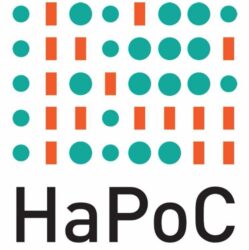, Computational artefacts. Towards a philosophy of computer science. Springer, 2018.
The logic of identity and copy for computational artefacts
, “The logic of identity and copy for computational artefacts”, Journal of Logic and Computation, 2018. http://dx.doi.org/10.1093/logcom/exy012
The First Information Explosion. The Role of Punch Card Technology in the Office Rationalization in Germany, 1910-1939
, “The First Information Explosion. The Role of Punch Card Technology in the Office Rationalization in Germany, 1910-1939”, Zeitschrift für Technikgeschichte, vol. 84, no. 3, 2017.
Would Turing Have Won the Turing Award?
, “Would Turing Have Won the Turing Award?”, Commun. ACM, vol. 60, pp. 7–7, 2017. http://dx.doi.org/10.1145/3144590
AI and the Origins of the Functional Programming Language Style
, “AI and the Origins of the Functional Programming Language Style”, Minds and Machines, vol. 27, pp. 449–472, 2017. http://dx.doi.org/10.1007/s11023-017-9432-7
Alan Turing: How His Universal Machine Became a Musical Instrument
, “Alan Turing: How His Universal Machine Became a Musical Instrument”, IEEE Spectrum, 2017.
Plato and the Nerd
, Plato and the Nerd, 1st ed. MIT Press, 2017.
Turing’s Pre-war Analog Computers: The Fatherhood of the Modern Computer Revisited
, “Turing’s Pre-war Analog Computers: The Fatherhood of the Modern Computer Revisited”, Commun. ACM, vol. 60, pp. 50–58, 2017. http://dx.doi.org/10.1145/3104032
Dimensoes da Historia e da Memoria da Informatica no Brasil (in Portuguese)
, Dimensoes da Historia e da Memoria da Informatica no Brasil (in Portuguese). Jundiai – SP: Paco Editorial, 2017.
Miscomputation in software: Learning to live with errors
, “Miscomputation in software: Learning to live with errors”, The Art, Science, and Engineering of Programming, vol. 1, no. 2, 2017. rs. http://dx.doi.org/10.22152/programming-journal.org/2017/1/14
